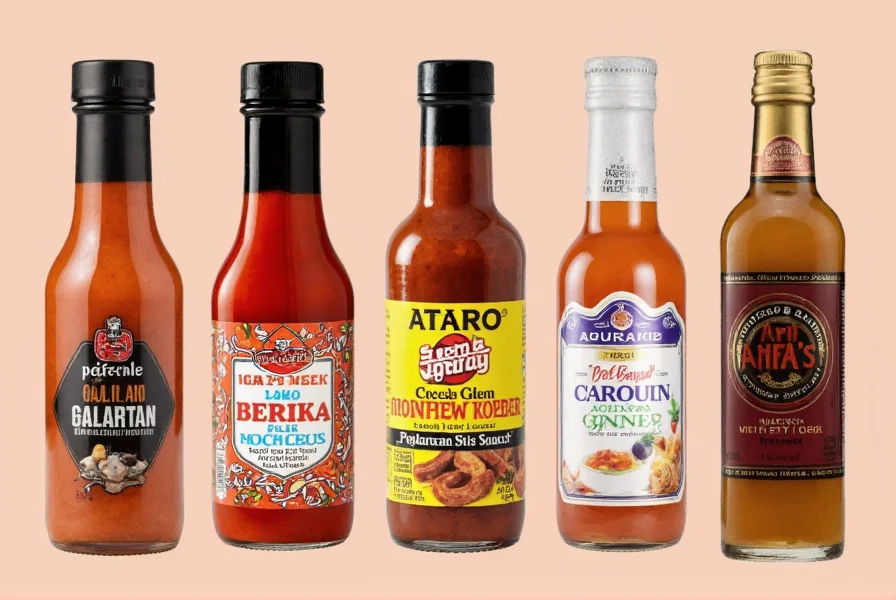7 Fiery & Fruity Mexican Sauces You Need to Try with Your Favorite Snacks!
Table of Contents
- Introduction
- Why Mexican Sauce for Fruit is So Addictive
- Top 7 Mexican Sauces for Fruit You Can’t Miss
- How to Use These Spicy Delights Like a Local
- Buying Guide: How to Choose the Right Sauce or Mix
- DIY Tips: Make Your Own Mexican Fruit Sauce at Home
- Conclusion
Introduction
If you’ve ever wandered through a street market in Mexico or walked past a food truck serving up fresh fruit cups dusted with chili powder, then you know that there’s something uniquely magical about combining sweet fruit with a kick of spice. This tradition, deeply rooted in Mexican culture, isn’t just a quirky snack—it’s a flavor experience that dances between heat, salt, tang, and sweetness.
The star of this flavor show? The iconic Mexican sauce for fruit, which often includes chili powders, lime juice, tamarind paste, and even chamoy—a fruity, salty, spicy condiment made from pickled fruits like apricots or mangos.
Why Mexican Sauce for Fruit is So Addictive
There’s science behind the craving! Combining sweet (fruits), sour (lime), salty (tajín or soy sauce), and spicy (chili) creates what chefs call the “umami bomb”—a flavor profile that activates multiple taste receptors at once. Here's why it works so well:
- Sweetness satisfies our primal sugar cravings.
- Spice triggers endorphin release—our brain interprets that burn as pleasure.
- Acidity cuts through richness and balances flavors.
- Salt enhances all the other tastes and adds depth.
Top 7 Mexican Sauces for Fruit You Can’t Miss
Here’s a list of the top Mexican sauces and seasonings used for dressing fruits. Whether you’re looking for convenience or authenticity, these are must-try additions to your kitchen shelf:
| Product Name | Flavor Profile | Main Ingredients | Best For | Where to Buy |
|---|---|---|---|---|
| Tajín Clásico | Spicy, Salty, Citrusy | Chili powder, salt, dehydrated lime | Dusting on fruit slices | Grocery stores, Amazon |
| Valentina Chamoy | Salty, Sweet, Tangy, Mildly Spicy | Pickled fruit, chili extract, vinegar | Dipping sauces for fruit | Mexican markets, Walmart |
| Chamoyada Syrup (Rica Fresa) | Fruity, Salty, Slightly Sour | Strawberry base, chili extract, citric acid | Making fruit paletas or slushies | Mexican grocery stores |
| Mi Picosa | Spicy Vinegar-Based Sauce | Chili peppers, vinegar, lime | Spritzing over fruit cocktails | Specialty Latin shops |
| Bueno Chips Chamoy | Candy-Coated Chili Jam | Chili paste, sugar, tamarind | Eating straight from the jar or topping fruit cups | Mexican supermarkets |
| Chamoy en Polvo (Powder Form) | Salty-Spicy Powder | Dehydrated chamoy, salt, chili | Dusting dried fruit or gummy candy | Online retailers |
| Maggi Salsa Brava | Mildly Spicy Tomato Base | Tomato paste, chili, vinegar | Dipping pineapple or jícama sticks | Grocery stores |
How to Use These Spicy Delights Like a Local
Using Mexican sauces for fruit doesn't have to be complicated. Here are some popular ways locals enjoy their spicy-sweet combos:
- Fruit Cups: Toss cubed mango, cucumber, or jícama with Tajín and a dash of lime.
- Paletas: Freeze fruit purées mixed with a touch of chamoy and Tajín for a fiery treat.
- Fruit Dips: Mix Valentina Chamoy with a bit of cream cheese or yogurt for a creamy dip.
- Gummy Candy Coating: Roll gummy worms in Chamoy en Polvo for an intense flavor hit.
- Ice Cream Boosters: Drizzle chamoy syrup over vanilla ice cream for a surprising twist.
Buying Guide: How to Choose the Right Sauce or Mix

Whether you're new to Mexican spices or a seasoned enthusiast, here's a breakdown of how to choose the perfect Mexican sauce for fruit:
For Beginners
- Tajín Clásico: Milder and more balanced than pure chili powder.
- Valentina Chamoy: Offers a complex but gentle flavor profile without overwhelming heat.
For Heat Lovers
- Mi Picosa Hot Sauce: Vinegary and punchy, perfect for adventurous palates.
- Chamoy en Polvo: Concentrated flavor with a strong chili and salt kick.
For Dessert Creators
- Rica Fresa Chamoyada Syrup: Ideal for frozen treats and candy creations.
- Bueno Chips Chamoy: A thick, sticky jam that pairs well with dried fruits and sweets.
For On-the-Go Snacking
- Packaged Fruit Mixes: Some brands sell pre-coated fruit snacks with a sprinkle of spice for convenience.
- Single-Serve Sachets: Look for portable versions of Valentina or Maggi for quick dipping.
DIY Tips: Make Your Own Mexican Fruit Sauce at Home
Want to get creative and impress your friends with homemade versions? Here’s a simple recipe to make your own basic chamoy-inspired fruit sauce:
DIY Chamoy-Inspired Fruit Sauce
Ingredients:- 1 cup sliced mango or apricot
- 1 tbsp white vinegar
- 1 tsp chili powder (adjust to taste)
- 1 tsp salt
- ½ tsp sugar (optional for sweetness balance)
- Juice of 1 lime
- Blend all ingredients until smooth.
- Adjust seasoning to your liking—add more lime for tartness, more chili for heat.
- Store in the fridge for up to a week, or freeze for later use.
You can also experiment by adding tamarind paste, papaya, or even dried hibiscus for extra complexity!
Conclusion

Mexican sauce for fruit isn’t just a snack trend—it’s a centuries-old tradition that blends bold flavors into one unforgettable bite. Whether you're trying Tajín for the first time or diving deep into the world of chamoy, there’s a whole universe of spicy-sweet combinations waiting for you to explore.
From fruit cups to frozen desserts, and from store-bought mixes to homemade magic, there’s no wrong way to enjoy these unique Mexican flavors. So go ahead—grab your favorite fruit, add a dash of heat, a sprinkle of salt, and a squeeze of lime. Your taste buds will thank you!










 浙公网安备
33010002000092号
浙公网安备
33010002000092号 浙B2-20120091-4
浙B2-20120091-4